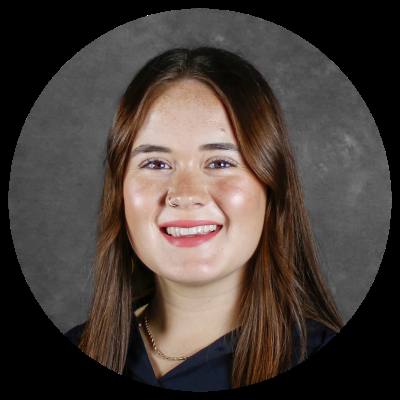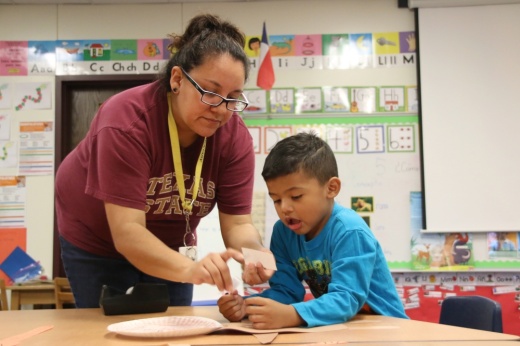As legislators consider a measure to fund private education opportunities through a voucher-like program, area educational institutions and advocates are weighing in on how such a program might impact them.
In a nutshell
The Texas Senate passed Senate Bill 1, its version of a voucher program, Oct. 12. Dubbed an educational savings account, or ESA, the program would see $500 million in taxpayer dollars set aside to help fund private educations for Texas families.
Under the program:
- Families could apply to receive $8,000 per child.
- The funds could be used to pay for books, tuition, tutoring, transportation and other education-related expenses.
- Around 60,000 students would qualify, with priority given to low-income families and families with disabled students.
- Funds can only be used at accredited private schools.
Laura Colangelo, executive director of the Texas Private Schools Association, said the program could make private education more accessible for these families.
“Every school offers some sort of financial aid, and we view this as an augment to that already successful scholarship program,” Colangelo said. “It would just allow more families to have that opportunity if they choose.”
Those in favor
Concordia High School, a small Lutheran private school in Pflugerville, is “cautiously optimistic” that an ESA program could be implemented in the state, Head of School Daniel Cattau said. The program would allow Concordia to open its doors to more students who otherwise wouldn’t have the opportunity to attend, he said.
“We certainly don't like the fact that tuition gets in the way of families coming to our school or being interested in our school at all,” Cattau said. “We’re trying to put that barrier down, and this would be one of those things that could possibly help with that.”
Put in perspective
Not every private school plans on accepting funds from this program should the bill become law.
The Girls School of Austin, an independent private school, will not accept any public funds, said Reagan Ward, the school’s director of advancement. An independent school is a type of private school, and Ward said the North Austin institution has not sought or accepted public funds since it opened in 2002.
“We are truly an independent school, and we really feel like it's important to maintain that,” Ward said.
She said the school has a robust financial aid and scholarship program to assist qualifying families with tuition and fees, and does not anticipate a negative impact to their enrollment for choosing not to accept public funds.
However, if the proposed funding is approved, Ward said more families might be interested in seeing whether private school is a good fit for them.
“What it may do is cause more families to start looking at independent schools,” she said. “Hopefully, they would take advantage of our financial aid.”
Colangelo echoed the sentiment, saying that the program might provide an opportunity for students who find public school does not meet their needs.
“What we've seen is B- or C-level students who just haven't found their footing in public school that are in search of another option,” she said. “Maybe they want some smaller class sizes, maybe they can get more individual attention.”
Another viewpoint
Raise Your Hand Texas, a public education advocacy group, is opposed to ESAs as it believes the program would take away state funding from already underfunded public schools, Senior Director of Policy Bob Popinski said.
“Teacher pay raises don't get funded, per pupil spending remains stagnant, and programs start to diminish because all of those funds are getting siphoned off into an unaccountable voucher program,” Popinski said.
Popinski said private schools should not receive state funding without state oversight. As private schools are not held to the same accountability standards as public schools, it would be difficult to measure student achievement and progress through an ESA program, he said.
Private schools can also turn away students and may raise their tuition rates once ESAs go into effect, he said.
“At the end of the day, parents and communities don't want to abandon their public schools. They just want them to continue to get better,” Popinski said. “What the Legislature should do is focus on education reforms that are proven to work.”
What they’re saying
Many local school districts have made statements decrying any type of program using public funds for private education. In Round Rock ISD, board President Amber Landrum described the potential program as a “defunding” of public education.
“Any attempt to defund education has a direct impact on your community," she said. "It has a direct impact on businesses moving to your area. Economic development is very important, and one of the big factors when companies decide to invest in a community is to look at the quality of the schools."
In Hutto ISD, trustee Amy English described the potential for ESAs as a “dismantling” of public education, with partisanship impacting how community members receive information about the use of public funds for programs like them.
“When I talk to some people in the community, they have a lot of misinformation about it,” English said. “It's really about having those conversations and using our voice to have those conversations.”
The prospect of public dollars being used for private education is something Leander ISD Superintendent Bruce Gearing opposes, calling it a dangerous option for not just the state, but the nation, and asking the state to focus more heavily on funding public education.
“That is very dangerous for the economy of the state,” Gearing said. “I think it's very dangerous for the future leadership of the state. I think it's very dangerous for our country.”






